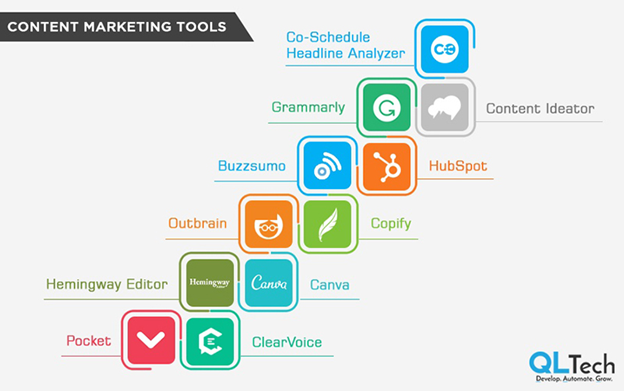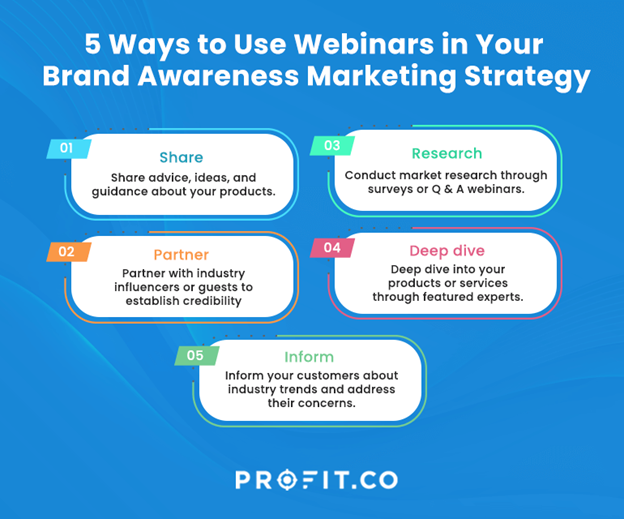Content
SHARE

In today’s digital age, content marketing has become an indispensable strategy for businesses to thrive and succeed. As 2025 approaches, marketers must stay ahead of the game and leverage the best tools and resources available. This article aims to explore the top content marketing tools and resources for 2025, providing valuable insights and recommendations to help businesses achieve their marketing goals.
[thrive_leads id=’8334′]
Understanding The Importance Of Content Marketing In 2025
Content marketing plays a pivotal role in driving business growth and establishing a strong online presence. In 2025, it is anticipated that the demand for high-quality, engaging content will continue to rise. Businesses that invest in content marketing will be able to build brand awareness, attract and retain customers, and ultimately drive conversions.
In today’s digital age, where information is readily available at our fingertips, consumers have become more discerning than ever. They no longer respond to traditional advertising methods as they once did. Instead, they seek valuable and relevant content that not only educates but also entertains. This is where content marketing comes into play.
The Role Of Content Marketing In Business Growth
Content marketing goes beyond just creating and publishing content. It helps businesses establish thought leadership, foster trust and credibility, and ultimately influence customer behaviour. By consistently delivering valuable and relevant content, businesses can position themselves as industry experts, attracting a loyal customer base and driving sustainable growth.
Take, for example, a fitness apparel brand that specialises in sustainable and eco-friendly products. Through content marketing, they can create blog posts, videos, and social media content that not only showcases their products but also provides valuable tips and advice on leading a healthy and sustainable lifestyle. By doing so, they not only attract potential customers but also establish themselves as a trusted authority in the industry.
Moreover, content marketing allows businesses to engage with their audience on a deeper level. By understanding their customers’ pain points and challenges, businesses can tailor their content to address these issues head-on. This personalised approach not only helps build trust but also establishes a strong emotional connection with the audience, leading to increased brand loyalty and customer retention.
How Content Marketing Has Evolved Over The Years
Content marketing has come a long way from simple blog posts and articles. In 2025, businesses need to embrace a multi-channel approach, including video marketing, interactive content, and personalised experiences. The ever-evolving digital landscape requires marketers to adapt and innovate, ensuring their content resonates with their target audience.
Video marketing, for instance, has gained significant traction in recent years. With the rise of platforms like YouTube and TikTok, businesses have found immense success in creating engaging and shareable video content. Whether it’s a behind-the-scenes look at their manufacturing process or a tutorial on how to use their products, videos allow businesses to connect with their audience in a more immersive and memorable way.
Interactive content, on the other hand, takes engagement to a whole new level. Quizzes, polls, and interactive infographics not only capture the attention of the audience but also provide valuable insights into their preferences and behaviours. This data can then be used to refine further and personalise future content, ensuring maximum impact and relevance.
Lastly, personalised experiences have become a key component of successful content marketing strategies. By leveraging data and analytics, businesses can create tailored content experiences for individual users. Whether it’s recommending relevant blog posts based on their browsing history or sending personalised newsletters with exclusive offers, businesses can make their customers feel valued and understood.
Content marketing is not just a passing trend but a fundamental strategy for businesses in 2025. By investing in high-quality, engaging content and embracing new channels and technologies, businesses can stay ahead of the curve and effectively connect with their target audience. The future of content marketing is bright, and those who seize the opportunity will reap the rewards in terms of brand growth, customer loyalty, and increased conversions.

Top Content Marketing Tools To Consider
Choosing the right content marketing tools can significantly enhance productivity and efficiency. Here are some essential features to look for when evaluating content marketing tools:
- Integration capabilities: Ensure the tool can seamlessly integrate with your existing marketing stack.
- Analytics and reporting: Look for tools that provide comprehensive data and insights to measure the success of your content marketing campaigns.
- Workflow management: A tool that streamlines collaboration and project management can help teams work together more effectively.
- Content creation and optimisation: Look for tools that offer features like keyword research, SEO optimisation, and content ideation to boost your content’s visibility.
Essential Features Of A Good Content Marketing Tool
A good content marketing tool should empower marketers to plan, create, distribute, and measure content effectively. It should offer a user-friendly interface, robust analytics, and seamless integration capabilities. By investing in the right tools, businesses can streamline their content marketing efforts and maximise their return on investment.
Evaluating The Cost-Effectiveness Of Content Marketing Tools
While it’s important to choose content marketing tools based on their features and usability, it’s equally crucial to consider their cost-effectiveness. Look for tools that offer scalable pricing plans, allowing you to start small and upgrade as your business grows. It’s also worth exploring free or freemium tools that provide basic functionality for those with limited budgets.
Exploring The Best Content Marketing Resources
In addition to tools, there are various resources available to enhance your content marketing knowledge and skills:
- Online content marketing courses: These courses offer in-depth training on content strategy, creation, and promotion.
- eBooks and webinars: Utilise these resources to gain insights from industry experts and stay up-to-date with the latest content marketing trends.
- Industry conferences and networking events: These events provide valuable opportunities to learn from peers, network, and gain inspiration for your content marketing campaigns.
The Value Of Online Content Marketing Courses
Online courses provide a structured learning environment where marketers can gain comprehensive knowledge and hands-on experience in content marketing. They offer valuable insights, practical tips, and case studies to help businesses develop effective content strategies and enhance their overall marketing efforts.
(Source: Team, P. (2023, May 19). Building Brand Awareness through Webinars: Strategies and Metrics. Best OKR Software by Profit.co. https://www.profit.co/blog/kpis-library/building-brand-awareness-through-webinars-strategies-and-metrics/)
Utilising Ebooks And Webinars For Content Marketing Knowledge
eBooks and webinars are excellent resources for expanding your content marketing knowledge. They often cover specific topics in-depth, offering actionable advice and best practices. By leveraging these resources, businesses can stay informed and continuously improve their content marketing strategies.
Leveraging Social Media Platforms For Content Marketing
Social media platforms continue to play a significant role in content marketing. In 2025, two platforms stand out for their content marketing potential:
The Power Of Instagram In Content Marketing
Instagram’s visual nature makes it an ideal platform for content marketing. Brands can create compelling visuals, share stories, and engage with their audience in a highly visible and interactive way. To make the most of Instagram, businesses should focus on creating visually appealing content, leveraging influencer partnerships, and utilising relevant hashtags to increase discoverability.
Harnessing The Reach Of Facebook For Content Marketing
With its extensive user base, Facebook remains a powerful platform for content marketing. Businesses can utilise Facebook’s advertising features to target specific audiences and promote their content effectively. Additionally, Facebook groups provide opportunities for community building and direct engagement with customers. To succeed on Facebook, businesses must consistently publish valuable content and actively engage with their audience.
SEO And Content Marketing: A Powerful Combination
Search Engine Optimisation (SEO) and content marketing are closely intertwined. By optimising your content for search engines, you increase its visibility and reach a larger audience. Here are some tools to boost your content’s SEO ranking:
- Keyword research tools: Identify popular search terms and incorporate them strategically into your content.
- On-page optimisation tools: Analyse and optimise your content’s meta tags, headings, and overall structure.
- Link building tools: Build quality backlinks to your content to improve its authority and search engine rankings.
The Impact Of SEO On Content Marketing
SEO is crucial for content marketing success. By understanding how search engines rank content, businesses can create high-quality, keyword-rich content that resonates with both users and search engines. Optimising your content for SEO ensures it is visible to the right audience, driving organic traffic and increasing conversions.
Tools To Boost Your Content’s Seo Ranking
Utilising SEO tools can help businesses gain valuable insights into their content’s performance and make data-driven decisions to improve their search engine ranking. From keyword research to on-page optimisation and link building, these tools provide actionable recommendations for optimising your content and maximising its SEO potential.
Conclusion
As we venture into 2025, the world of content marketing continues to evolve and grow. By embracing the best tools and resources available, businesses can stay ahead of the competition and drive meaningful results. Whether it’s investing in content marketing tools, leveraging social media platforms, or optimising content for SEO, businesses must continuously adapt and innovate to succeed in the ever-changing digital landscape.
Remember, content is king, but the tools and resources you use will propel your content marketing efforts to new heights. remain informed, stay creative, and stay committed to producing exceptional content that captivates your audience and drives business growth.
[thrive_leads id=’3523′]
Frequently Asked Questions About Content Marketing Tools
What is a content marketing tool?
Create and execute a powerful data-informed content strategy based on your audience’s needs. Combine creativity and analytics at each step of your workflow, from ideation to creation, optimisation and measurement.
What Is Content Marketing Technique?
Content marketing is a strategic marketing approach focused on creating and distributing valuable, relevant, and consistent content to attract and retain a clearly defined audience and ultimately to drive profitable customer action.
What Is Content Marketing With Example?
Content marketing is the development and distribution of relevant, useful content—blogs, newsletters, white papers, social media posts, emails, videos, and the like—to current and potential customers.
Which Tool Is Used For Content Ideas?
Google Trends – for data insights and graphics to support and inform your content. Speaking of which, there’s no better provider of trending topic data than Google Trends.
What Is The Main Goal Of Content Marketing?
The primary objective of content marketing is to put your brand on the map and create brand awareness. Without awareness, potential customers cannot make informed decisions about your products or services.














